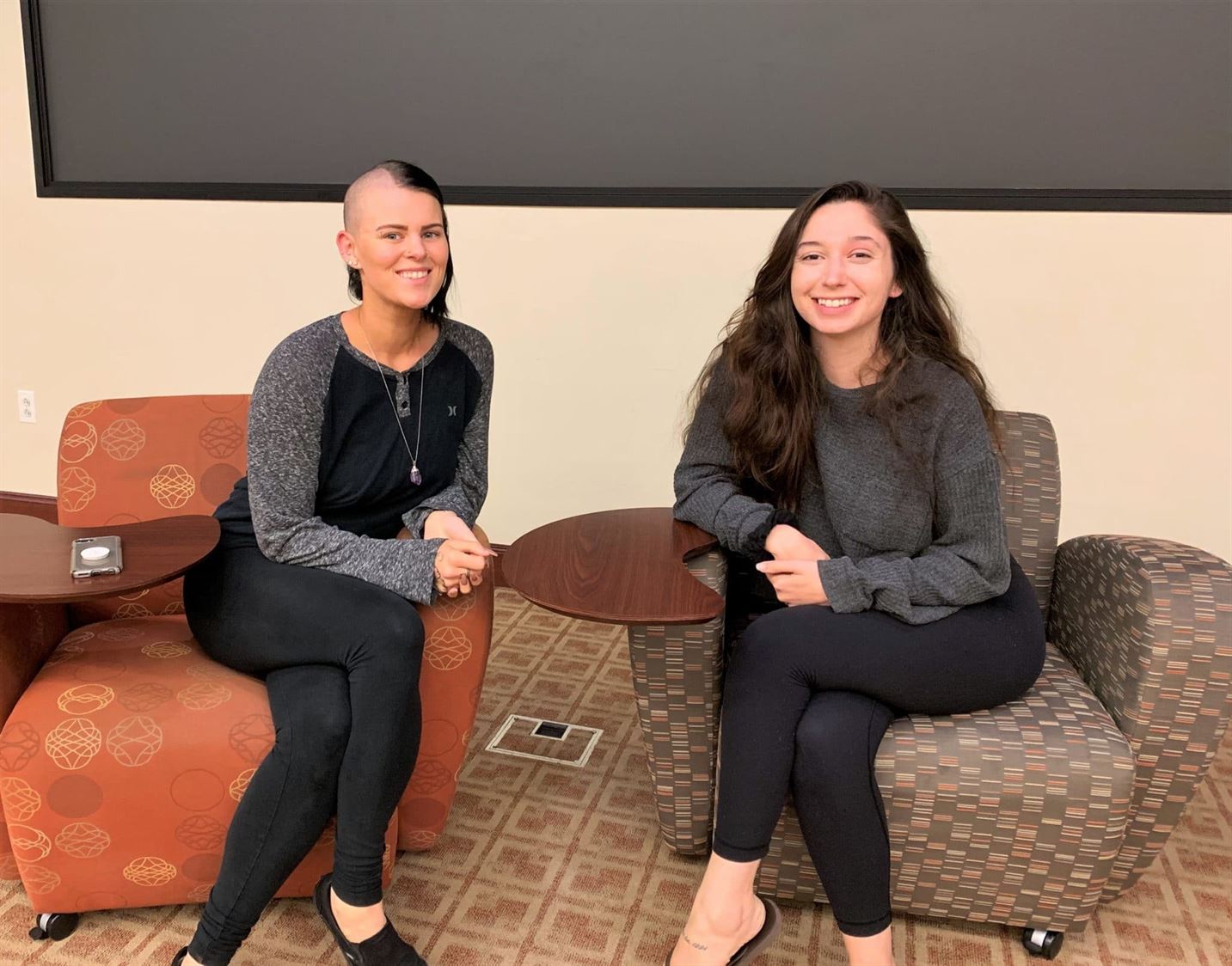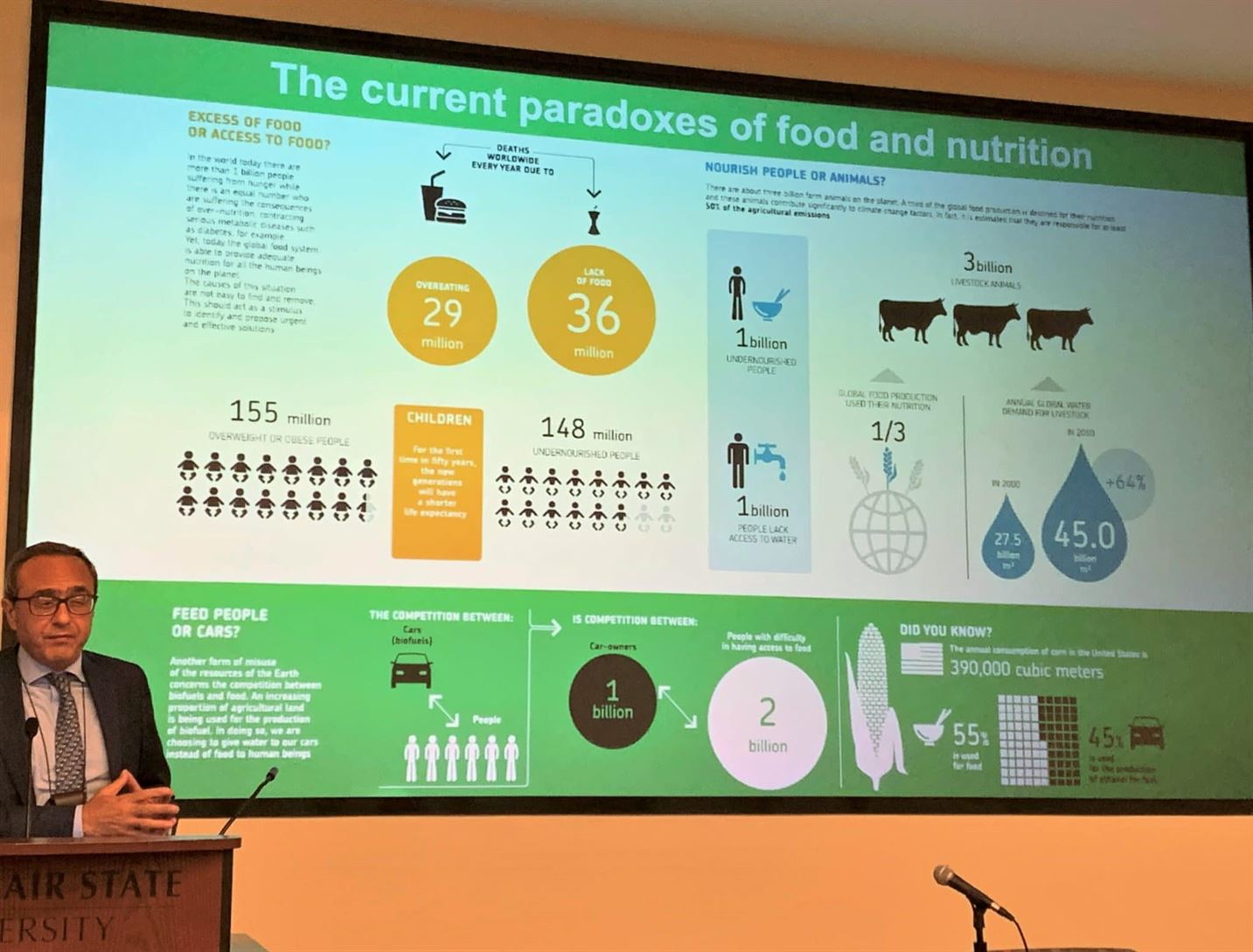In lieu of climate change being a strong present topic, students and staff gathered at the Feliciano School of Business for a panel presentation of the Critical Made in Italy series entitled “Environment and Nutrition.”
The Thursday panel, presented by the Theresa and Lawrence R. Inserra Chair in Italian and Italian-American Studies, explored the case of farms, companies and towns in Sicily and New Jersey. Their successful sustainability within food production, consumption and distribution resulted in stories about environmental protection.

Pictured above from left to right: Jorge Lorenzo Trueba, Teresa Fiore, Maurizio Cellura and Wayne DeFeo
Photo courtesy of Chris Kong
Moderated by Teresa Fiore of the Inserra Chair, the panel included presentations by Italian professor Dr. Maurizio Cellura of University of Palermo, remarks by Montclair State assistant professor Jorge Lorenzo Trueba of earth and environmental studies and Wayne Defeo, of the associated Environmental Consulting in New Jersey.
DeFeo founded DeFeo Associates; a full-service environment consulting firm that provides clients with environmental expertise, including a strong focus on environmental sustainability.
Driven by economic, cultural and environmental factors, the presentation emphasized the important inheritance of what impacts our food system. Some examples of these influences include global trends in population, food availability, cost changes in the supply chain, food waste and water.
One of Cellura’s main points focused on how the food chain impacts the environment. This includes resource inputs eventually being processed into pressure outputs. An example of a resource input is fossil fuels through distribution, resulting in pressure outputs in greenhouse gasses and air pollutants.
Cellura also touched on the subject of the current paradoxes in food, nutrition and life cycle thinking (LCT). LCT aims to facilitate the generation and application of science based life cycles at any sustainable relation. It further prevents moving problems from one life cycle step to another, while capturing the complexity hidden behind a product.

Graduate Dietetics major Amargio Couture and Junior Dakota Eaton at the event.
Lauren Lamantia | The Montclarion
Dakota Eaton, a junior nutrition and food science major, attended the seminar with intentions to learn more about possible food choices and tips for their future career.
“I hope to go into self-practicing, owning a business on plant-based nutrition, dietetics and holistic health care,” Eaton said.
The presentation also highlighted what society can do to improve a more resourceful way of retaining a sustainable food system going forward. Small steps that can aid in a bigger change can be created with better technical knowledge on how the environment affects our food, having a shorter supply chain and reducing food waste and losses.
Amargio Couture, who is currently studying dietetics in her graduate program, has already taken useful environmentally friendly steps in her own home.
“I have a glass straw at home and I use mostly reusable containers,” Couture said. “I’m doing everything I can to reduce my carbon footprint.”



